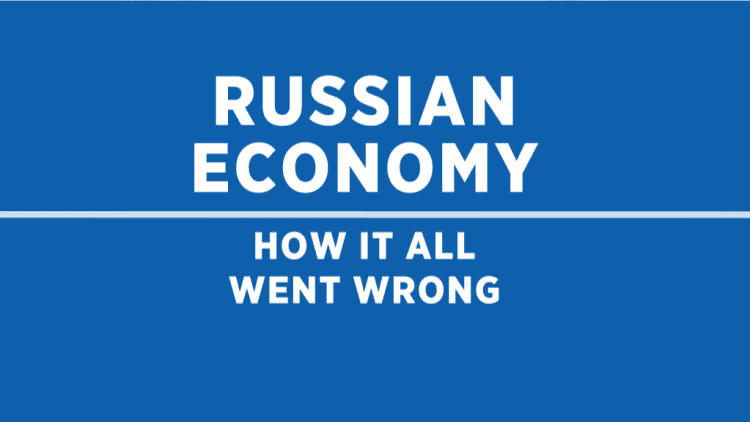
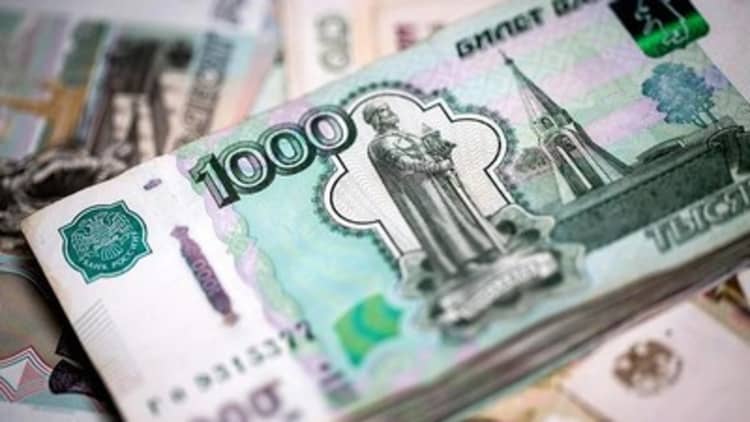
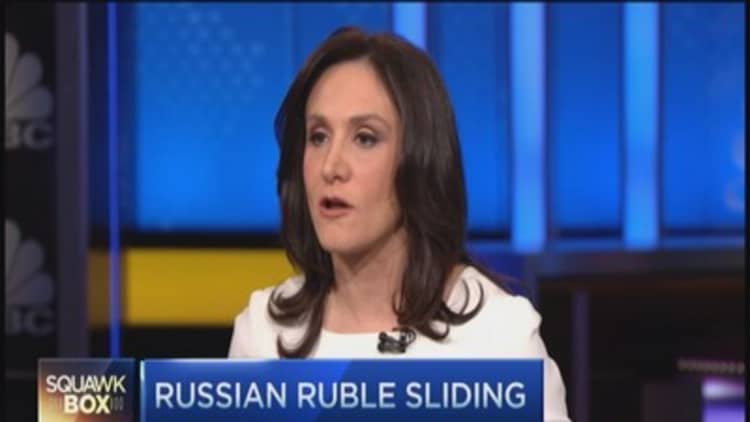
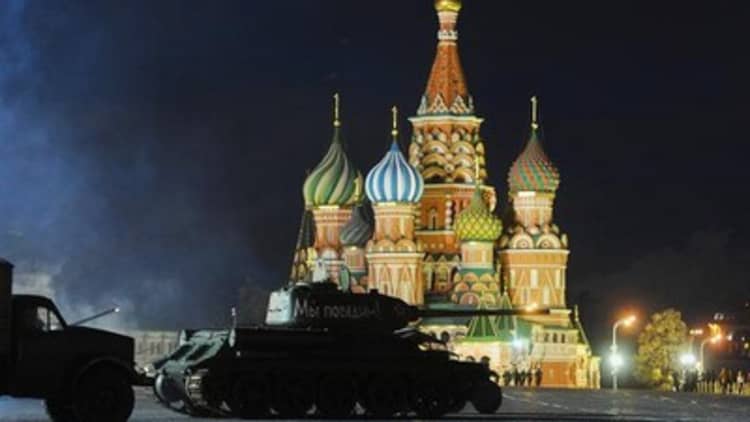
The Russian central bank's dramatic rate hike further threatens financial stability in the troubled economy and is thus unlikely to put a floor under the country's currency or stocks, say analysts.
The Central Bank of Russia (CBR) unexpectedly hiked rates by 650 basis points to 17 percent overnight after the beleaguered ruble plunged to a fresh record low. The currency rebounded to 60.00 to the U.S. dollar following the move but has since crumbled during Tuesday's session and hit a fresh all-time low of 72.152 by mid-afternoon London time.
"This is essentially a panic situation, the central bank took the most drastic action they could think of," Uwe Parpart, managing director and head of research at Reorient Financial Markets told CNBC.
The rate hike will further tighten domestic liquidity, putting a strain on the domestic corporate sector and reinforcing economic weakness, Parpart noted.
Read MoreRussia raises key rate to 17%, effective Tuesday
"You can expect credit issues facing various companies and banks, so there's a real issue of financial stability for Russia," he said. "It's a pretty bad situation, the only place worse off is Venezuela."
Oil price stability will be the main determinant of stability in Russian assets, Parpart said. The price of oil - Russia's main export and revenue source - has fallen 46 percent in the past six months due to abundant supply—partly from U.S. shale oil—and low demand growth.
"If oil prices continue to drift lower, the central bank's measures will be overcome by more panic in a matter days."
Further downside
With such uncertainty, it's much too early for investors to gain exposure to Russia, he said.
Read MoreAre Russia's bonds the next big worry?
David Riedel, president and founder at Riedel Research Group says trying to find a bottom in Russian assets is akin to catching a falling knife.
"I think there's a lot further downside in the Russian situation," he said. "I have nothing but sympathy for you if you own a lot of Russian stocks."
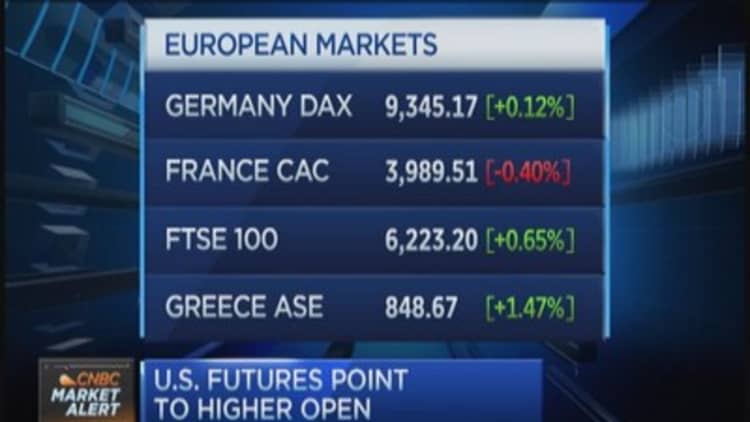
On top of the collapse in oil prices, the economy faces the risk of new U.S. sanctions, Riedel notes.
U.S. Congress on Monday sent President Barack Obama legislation setting out further sanctions on Russia. Administration officials say the president is assessing the measure, which would target Russia's energy and defense industries, according to the Associated Press.
Rate hike not enough?
Stan Shamu, strategist at IG does not expect a sustained turnaround in Russian assets on the back of central bank action either.
Read MoreMarket wants to know how Russia will pay for imports
"Given the sanctions the country is also facing, any recovery in the ruble and domestic assets could be short lived," he said.
Benoit Anne, strategist for Societe Generale, on the other hand, believes CBR's action is a "game changer" in the course of the ruble.
"After weeks of lamenting over the central bank's indecisiveness, I am at last impressed by the policy response," he said. "Game on. The CBR now means business."
Investment opportunity?
Nicholas Ferres, investment director, global asset allocation, says Russian government bonds may warrant another look following the central bank's move to defend its currency.
Read MoreGoogle closes Russia office after Internet crackdown
"Russia has the means to pay their sovereign obligations and even cover the corporate obligations," he said.
"Therefore, following the dramatic collapse in price, the now aggressive central bank action and Russia's ability to pay, sovereign [debt] is very attractive in both the dollar and particularly in local currency terms."


